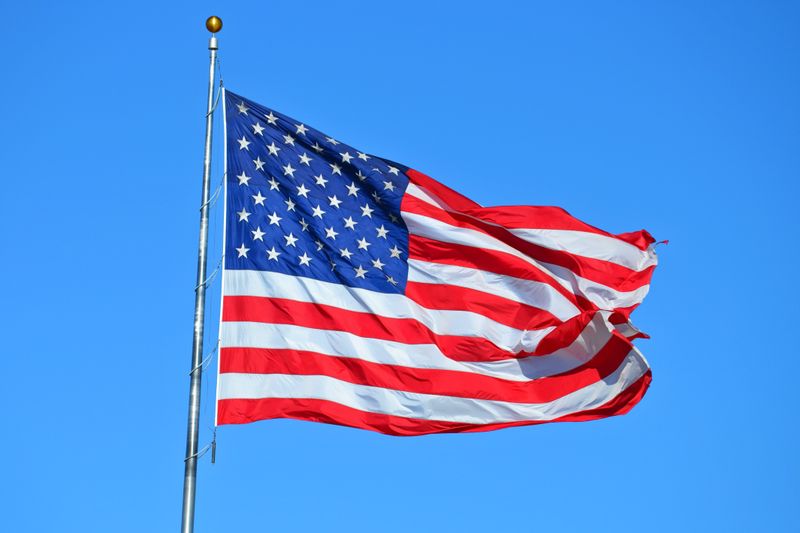16 Ways Tourists Accidentally Offend Americans Without Realizing

It’s easy to make small missteps when exploring a new country, especially one as diverse and culturally layered as the U.S. What might feel normal elsewhere can sometimes come across as impolite or even intrusive here.
I’ve seen it happen more than once—well-meaning tourists getting puzzled looks or awkward silence after what seemed like a friendly gesture.
For instance, tipping isn’t optional like in some countries, it’s expected. Not tipping your server at a restaurant? That’s a quick way to leave a bad impression. Then there’s personal space. Americans tend to value it, so standing too close in a line or striking up deep conversations with strangers might feel intrusive.
Another common slip? Joking about sensitive topics like politics or race. It’s easy to stumble into those conversations without realizing how differently they’re approached here. Curious to know which habits surprise locals the most? Or want tips on how to blend in better while still being yourself?
1. Tipping Etiquette

How often do you think about tipping when dining out? In the United States, it’s customary to tip service staff, like waiters and bartenders, as a gesture of appreciation for good service. If you skip this practice, it might be perceived as rude.
Though the tipping percentage may vary, generally, a 15-20% tip on the total bill is expected. This is more than just a custom, it helps the staff make a liveable wage.
Wherever you dine or drink, remember to check the bill for any included gratuity. If it’s missing, add it yourself. This simple act ensures you leave a good impression.
2. Personal Space

It’s all about respecting personal space. In the U.S., people value their personal bubbles. Standing too close to someone in a queue or a public space can make them uncomfortable.
When in doubt, keep an arm’s length distance. This unwritten rule applies in places like elevators, waiting lines, and public transport.
This respect for personal space extends to conversations too. Avoid leaning in too much when talking. Give people room to breathe, and you’ll find interactions more pleasant and relaxed.
3. Flag Etiquette

When handling the U.S. flag, one must tread lightly. Many Americans view their flag with deep respect, almost reverence. If you’re using it as a prop or casually draping it, think twice.
The flag should never touch the ground or be used as clothing or decoration. These actions might seem harmless, but they can be seen as disrespectful.
When capturing moments with the flag, be mindful of its placement and handling. Share your patriotism without inadvertently offending those around you.
4. Sense of Humor

How different can humor be? Quite a bit, actually. American humor often includes sarcasm and irony, which can be misunderstood by those unfamiliar with it.
It’s not uncommon for jokes to fall flat or even offend if cultural contexts are missed. If someone doesn’t laugh, they might not have found it funny, or maybe didn’t understand.
When joking, consider your audience. Cultural humor differs significantly, so what’s funny elsewhere might not translate. Keep humor lighthearted, and be open to learning from reactions.
5. Small Talk

Are you ready to chat? In the U.S., small talk is a social norm. People often engage in light conversations about the weather, sports, or daily happenings, even with strangers.
If someone strikes up a conversation, it’s usually out of friendliness, not nosiness. Embrace these moments as a way to connect and get to know the local culture.
When participating, avoid diving into personal or controversial topics right away. Enjoy the exchange and let conversations flow naturally. You might be surprised by the connections you make.
6. Queueing System

Did you know Americans take queueing seriously? Cutting in line is a quick way to frustrate locals. In most places, lines are respected, whether at a coffee shop or amusement park.
This system ensures fairness and order. If you find yourself in a hurry, it’s better to ask if you can go ahead, rather than just doing it.
Respecting the queue shows understanding and consideration for others. It’s a small gesture that speaks volumes about your awareness of local customs.
7. Punctuality

When it comes to time, Americans value punctuality. Arriving late to meetings or appointments can be seen as disrespectful or inconsiderate.
Whether meeting friends or attending a business function, being on time conveys respect for others’ schedules. Aim to arrive at least a few minutes early.
If running late, a quick message or call is appreciated. Showing respect for time reflects well on you and leaves a positive impression.
8. Dress Code

When dressing, context is key. In the U.S., different occasions call for specific attire. Turning up in casual clothes at a formal event can be seen as disrespectful.
Check the invitation or ask the host about the dress code if unsure. This ensures you’re dressed appropriately and respectfully.
In casual settings, Americans tend to dress comfortably, but even then, extremes are generally avoided. Dressing suitably shows awareness and respect for the occasion.
9. Public Manners

Are you aware of your volume? Speaking loudly in public places, like libraries or restaurants, can disturb others. Americans appreciate quiet and calm in such settings.
When using phones, it’s polite to lower your voice, especially in confined spaces. Being considerate enhances the environment for everyone.
Remember, public manners extend beyond noise. Things like holding doors or saying ‘excuse me’ go a long way in showing respect to those around you.
10. Table Manners

It’s not just about the food at American tables. Table manners matter, too. Keeping elbows off the table is one such expectation.
When dining, chew with your mouth closed and use utensils properly. These small actions show respect and appreciation for the meal.
Being aware of these basic manners can help you fit in comfortably during meals. Sharing the dining experience becomes more enjoyable for everyone involved.
11. Privacy

Where does curiosity cross the line? Americans value privacy highly. Peeking into others’ lives or spaces can be seen as intrusive.
Respect boundaries, both physical and conversational. Asking too many personal questions or invading physical spaces can offend.
This respect for privacy extends online, too. Sharing or posting personal information without consent is frowned upon. Being mindful of this can help maintain respectful relationships.
12. Cultural Sensitivity

When exploring cultural events, sensitivity is key. Wearing attire that might be sacred or significant to another culture can offend.
If attending cultural gatherings, it’s wise to research appropriate attire and behavior. Respecting traditions and customs is paramount.
Understanding and embracing cultural differences enhances your experience and shows respect to those you’re visiting. This awareness leads to richer interactions and memories.
13. Greetings

Did greetings ever trip you up? In the U.S., a handshake is the standard greeting, especially in formal settings. It’s firm and brief.
Avoid going for a hug unless you’re sure it’s appropriate. Personal space is valued, and not everyone is comfortable with close contact.
Reading the situation and responding accordingly helps in making a good first impression. Being attuned to these cues shows respect and understanding.
14. Sports Enthusiasm

Have you felt the thrill of American sports? Enthusiasm here can be intense, especially during major games like football or basketball.
Even if sports aren’t your thing, appreciating the energy and passion is part of the experience. Engaging with fans can be fun and insightful.
If invited to watch a game, join in the excitement. Whether cheering or learning, it’s a chance to connect with locals.
15. Political Discussions

How do you navigate sensitive topics? Politics can be a divisive subject in the U.S. Engaging in these discussions requires tact and sensitivity.
If politics arise, listen and observe before interjecting. Understand that opinions vary widely, and debates can become heated.
Opting to steer clear of political discussions can often be the wiser choice. Respecting diverse viewpoints helps maintain harmony.
16. Gift Giving

Gift-giving customs can surprise. In the U.S., gifts are typically given during holidays, birthdays, or special occasions.
If you bring a gift to a casual meeting, it might catch someone off guard. Understanding context is key.
When giving gifts, consider the recipient’s preferences and cultural background. Thoughtful gifts reflect consideration and understanding.
